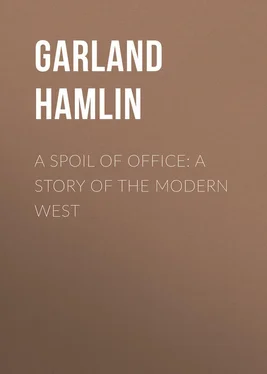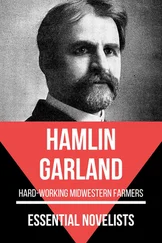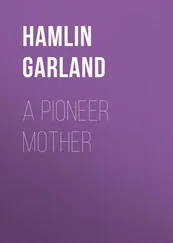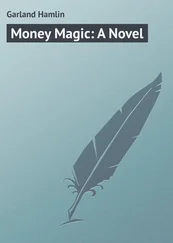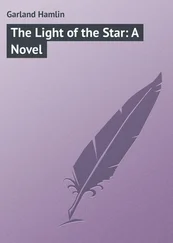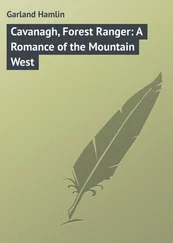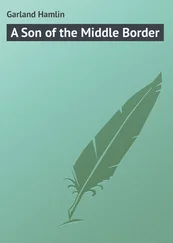Hamlin Garland - A Spoil of Office - A Story of the Modern West
Здесь есть возможность читать онлайн «Hamlin Garland - A Spoil of Office - A Story of the Modern West» — ознакомительный отрывок электронной книги совершенно бесплатно, а после прочтения отрывка купить полную версию. В некоторых случаях можно слушать аудио, скачать через торрент в формате fb2 и присутствует краткое содержание. Жанр: foreign_antique, foreign_prose, на английском языке. Описание произведения, (предисловие) а так же отзывы посетителей доступны на портале библиотеки ЛибКат.
- Название:A Spoil of Office: A Story of the Modern West
- Автор:
- Жанр:
- Год:неизвестен
- ISBN:нет данных
- Рейтинг книги:5 / 5. Голосов: 1
-
Избранное:Добавить в избранное
- Отзывы:
-
Ваша оценка:
- 100
- 1
- 2
- 3
- 4
- 5
A Spoil of Office: A Story of the Modern West: краткое содержание, описание и аннотация
Предлагаем к чтению аннотацию, описание, краткое содержание или предисловие (зависит от того, что написал сам автор книги «A Spoil of Office: A Story of the Modern West»). Если вы не нашли необходимую информацию о книге — напишите в комментариях, мы постараемся отыскать её.
A Spoil of Office: A Story of the Modern West — читать онлайн ознакомительный отрывок
Ниже представлен текст книги, разбитый по страницам. Система сохранения места последней прочитанной страницы, позволяет с удобством читать онлайн бесплатно книгу «A Spoil of Office: A Story of the Modern West», без необходимости каждый раз заново искать на чём Вы остановились. Поставьте закладку, и сможете в любой момент перейти на страницу, на которой закончили чтение.
Интервал:
Закладка:
He sat down and fell upon the dinner silently, but there was a hot flush still upon his face. He was not a beau. It had always been difficult for him to address a marriageable woman, and a joke on that subject threw him into dumb confusion. He had lived a dozen tender dreams of which no one knew a word. Indeed, he never acknowledged them to himself. He had admired in this way Eileen Deering whom he had seen with Milton a few times during the year. He now envied Milton his easy air of calm self-possession in the presence of two such beautiful girls. There was a bitter feeling of rebellion in his heart.
Miss Wilbur had stirred his unexplored self. Down where ambitions are born; where aspirations rise like sun-shot mists, her words and the light of her face had gone. Already there was something sacred and ineffably sweet about her voice and face. She had come to him as the right woman comes sometimes to a man, and thereafter his whole life is changed.
He walked away from the few people he knew, and tried to interest himself in the games they were playing but he could not. He drifted back to the grand stand and sought about till he could see Miss Wilbur once more. She was so pure, so beautiful to him.
The hour or two after dinner was spent in visiting and getting acquainted, and the time seemed all too short. Each granger took this opportunity of inquiring after the health of the other grangers of the county. The young people wandered in laughing, romping groups about the grounds, buying peanuts and sugar candy, and drinking the soda water and lemonade which the venders called with strenuous enterprise.
On the shadowed side of the stand the leading men of the grange gathered, consulting about plans and measures.
"Now, it seems to me that we're going on all right now," said Deering. "We're getting our goods cheap and we're cuttin' off the middleman."
"And we're getting hold of the railways."
"Yes, but it don't amount to nothin' compared to what ought to be done. We ought 'o oust them infernal blood-suckers that's in our court-house, and we want to do it as a grange."
"No," said Jennings in his placid way, "we can do that better. I've got a plan."
"What we want," said Hobkirk, "is a party, a ticket of our own, then we can" —
"No, we can't do that. It won't be right to do that. We must stand by the party that has given us our railway legislation."
Milton and several of the younger farmers drew off one side and talked earnestly about the fall campaign.
"They'll beat us again unless we go in together," Milton said with emphatic gesticulation. Milton was a natural politician. His words found quick response in the erratic Hobkirk, who had good ideas but whose temperament made all his words jagged shot. He irritated where he meant to convince.
Bradley listened to it all without feeling that he had any part in it. It didn't seem to him that politics had anything to do with the beautiful words of the girl. On the stand the choir began to sing again and he walked toward them. They sang on and the people listened while they packed away the dishes. They sang "Auld Lang Syne," and "We'll Meet Beyond the River," with that characteristic attraction of the common people for wistful, sorrowful cadences which is a paradox not easily explained.
"All aboard!" called Councill from his wagon as Bradley drove the team up to the band stand. While the merry young people clambered in and paired off along the seats he was seeing Miss Wilbur shaking hands with the people who paused to say good-by. His heart ached for a glance of her brown eyes and a word, but he held the reins in his great hands and his face showed only his usual impassive reticence. He was only Councill's hired man.
The banners were taken up, the children loaded in, the boys looking back wistfully to the games and the candy-stands. Councill unfurled his flag to the wind, and Bradley swung the eager horses into the lane. On all sides the farmers' teams were getting out into the road; the work of the marshals was done. Each man went his own gait.
The young people behind Bradley began to sing: —
"Out on an ocean all boundless we ride,
We're homeward bound,
Homeward bound."
And so along each lane through the red sunset the farmers rolled home. Home through lanes bordered with velvet green wheat, across which the sunlight streamed in dazzling yellow floods. Home through wild prairies, where the birds nested and the gophers whistled. The dust rose up, transformed into gold by the light of the setting sun. The children fell asleep in their tired mothers' arms. The men shouted to each other from team to team, discussing the speakers and the crops.
Smiles were few as each wagon turned into its gateway and rolled up to the silent house. The sombre shadow of the farm's drudgery had fallen again on faces unused to smiling.
Only the lovers lingering on the road till the moon rose and the witchery of night came to make the girlish eyes more brilliant, softening their gayety into a wistful tenderness, only to these did the close of the day seem as sweet and momentous as the morning. While the trusty horse jogged on, impatient of the slow pace set by his driver, the lovers sat with little to say, but with hearts lit by the light that can glorify for a few moons, at least, even the life of ceaseless toil.
III.
BRADLEY RESOLVES TO GO TO SCHOOL
A farm is a good place to think in, if a man has sufficient self-sustaining force – that is, if work does not dominate him and force him to think in petty or degrading circles.
It is a lonely life. Especially lonely on a large farm in the West. The life of a hired man like Bradley Talcott is spent mainly with the horses and cattle. In the spring he works day after day with a drag or seeder, moving to and fro an animate speck across a dull brown expanse of soil. Even when he has a companion there is little talk, for there is little to say, and the extra exertion of speaking against the wind, or across distances, soon forces them both into silence.
True, there is the glory of the vast sweep of sky, the wild note of the crane, the flight of geese, the multitudinous twitter of sparrows, and the subtle exalting smell of the fresh, brown earth; but these things do not compensate for human society. Nature palls upon the normal man when he is alone with her constantly. The monotone of the wind and the monochrome of the sky oppress him. His heart remains empty.
The rustle of flashing, blade-like corn leaves, the vast clean-cut mountainous clouds of June, the shade of shimmering popple trees, the whistle of plover and the sailing hawk do not satisfy the man who follows the corn-plow with the hot sun beating down all day upon his bent head and dusty shoulders. His point of view is not that from the hammock. He is not out on a summer vacation. If he thinks, he thinks bitter things, and when he speaks his words are apt to be oaths.
Still a man has time to think and occasionally a man dominates his work and refuses to be hardened and distorted. Many farmers swear at the team or the plow and everything that bothers them. Some whistle vacantly and mechanically all day, or sing in endless succession the few gloomy songs they know. Bradley thought.
He thought all summer long. He was a powerful man physically and turned off his work with a ready knack which left him free to think. All day as he moved to and fro in the rustling corn rows, he thought, and with his thinking, his powers expanded. He had the mysterious power of self-development.
The centre of his thinking was that slender young woman and the words she had uttered. He repeated her prophetic words as nearly as he could a hundred times. He repeated them aloud as he plowed day after day, through the dreamful September mist. He began to look ahead and wonder what he should do or could do. Must he be a farmer's hired man or a renter all his life? His mind moved slowly from point to point, but it never returned to its old dumb patience. His mind, like his body, had unknown latent forces. He was one of those natures whose delicacy and strength are alike hidden.
Читать дальшеИнтервал:
Закладка:
Похожие книги на «A Spoil of Office: A Story of the Modern West»
Представляем Вашему вниманию похожие книги на «A Spoil of Office: A Story of the Modern West» списком для выбора. Мы отобрали схожую по названию и смыслу литературу в надежде предоставить читателям больше вариантов отыскать новые, интересные, ещё непрочитанные произведения.
Обсуждение, отзывы о книге «A Spoil of Office: A Story of the Modern West» и просто собственные мнения читателей. Оставьте ваши комментарии, напишите, что Вы думаете о произведении, его смысле или главных героях. Укажите что конкретно понравилось, а что нет, и почему Вы так считаете.
